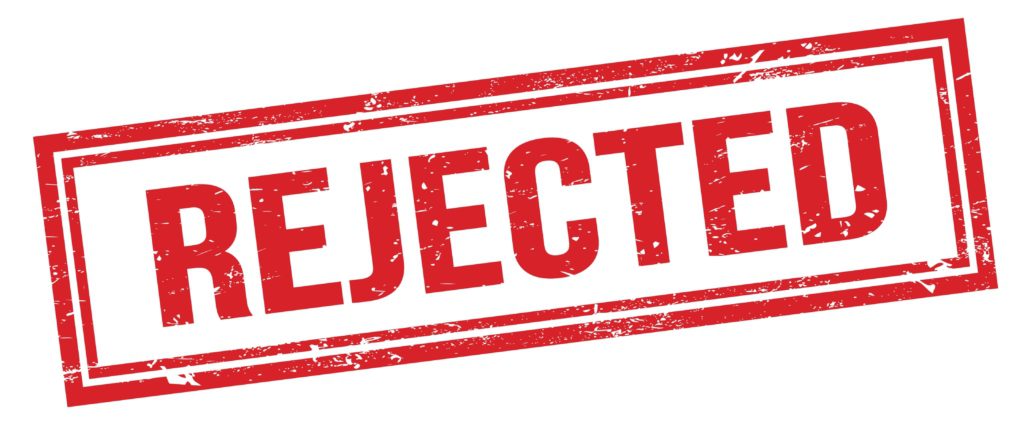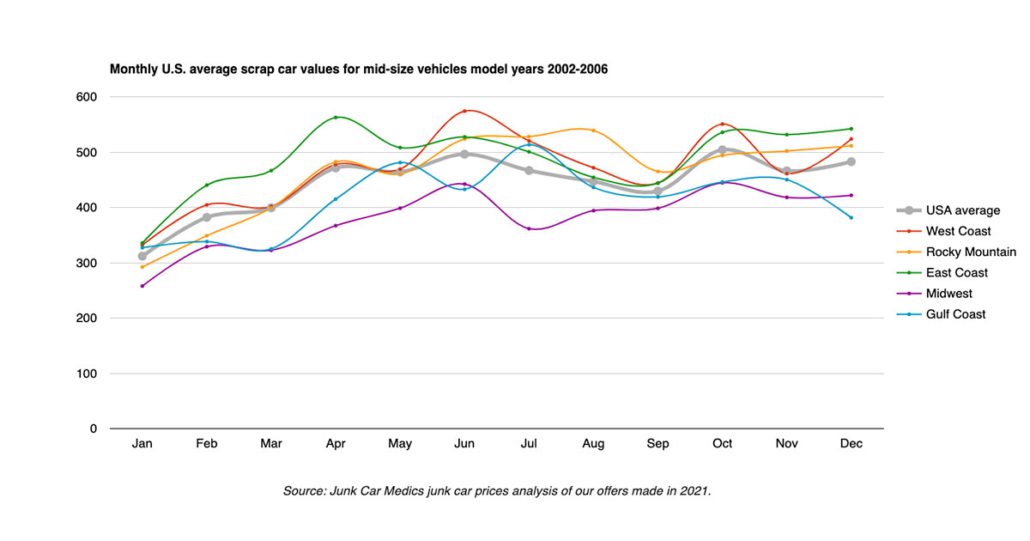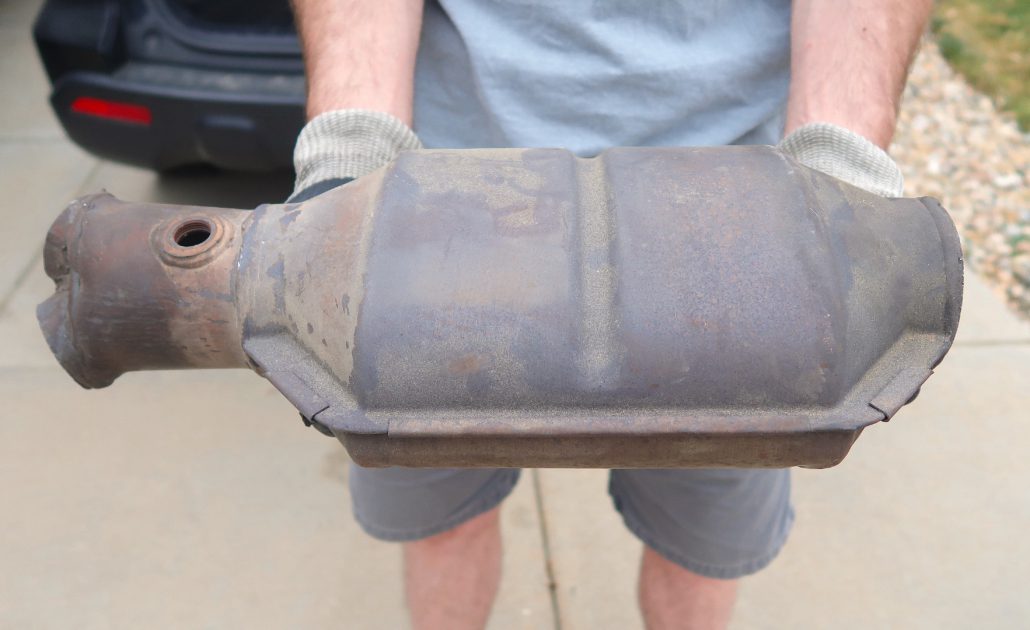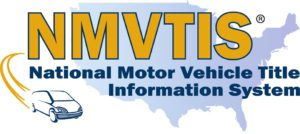Counting Blessings
This is the time of year when we tend to reflect on the things we are thankful for…
This is the time of year when we tend to reflect on the things we are thankful for…
Your team has a lot to do in order to dispose of abandoned vehicles…
Key Control? Locksmiths?
By: Michael Whitfield
As a seller of abandoned and impounded property, retail buyers will always look at each vehicle purchase with a healthy dose of skepticism. However, if you want your abandoned vehicle program to maximize long-term revenues, a major key to accomplishing this is by maximizing your program’s credibility.
There can be challenges when developing a liquidation program. How you handle these challenges is what will keep your repeat buyers engaged and actively participating in all of your sales events.

Rejected paperwork can cost you money by eliminating days of storage that can be charged or ultimately the ability to sell the vehicle. You lose time by having to start your process over and repeat the steps you’ve already taken, including a visit to the agency office to file your paperwork. And the grief comes when something isn’t right, you’ve already sold the car and the owner hires a lawyer to sue you.
Making sure the information you are working with and the processes you employ in your office are correct can save the day. For example, making sure the records of owners and lienholders you use to send notification letters in real- time is imperative. The last thing you want to do is use stale data that doesn’t accurately reflect the interested parties on the title and registration. You may have to prove you sent the letters in good faith. If that information was accessed in real-time you can demonstrate that is what was provided by the DMV. But if your source provides records that could be as old as 30 days, you are flirting with disaster. Always check your data source for timeliness!
Reading tow statutes is enough to make you pull your hair out but making sure you are following the rules when it comes to sending notifications in the manner and timeframe required by your state rules is obviously key to acceptable paperwork. Including the vehicle and location details outlined in the statute and making sure your response to an owner meets the spirit of the law, is paramount in covering yourself and your business interests during the process.
Tow statutes can change every year when your state legislature is in session. If you are a member of an association keep an eye out for legislative alerts or do your own research. Keep a link to your jurisdiction’s website and rules related to the abandoned vehicle process on the desktop of everyone who processes paperwork. If there’s confusion, check with the agency that has oversight and ask for clarification. Bottom line – stay informed, focus on accuracy, and avoid the grief that comes with rejected or incorrect paperwork.
By: Michele Lee
Junk car prices rose 55% on average across the U.S. in 2021 and the demand continues into 2022.
Scarce new and used vehicle supplies, along with strong used parts demand, were the major factors in the average price of junk cars increasing by 55% in the U.S. in 2021. The average price of a junk car increased by $170.85 between the start and end of 2021. The average price of a junk car started 2021 at $311.87 and finished $482.72.
U.S. junk car prices can vary regionally. Local supply and demand as well as variations in vehicle make, model, condition and content reflect in the prices.

What caused junk car prices to rise so much in 2021?

One major contributor to these high junk car prices was the COVID-19 pandemic-related microchip shortage, which caused the loss of millions of units of new car production. Many buyers who could not find new cars on dealer lots then entered the used-car market, where increased demand there pushed up used car prices to very high levels.
Many price-conscious buyers had to settle for older, higher-mileage used cars that required more maintenance. Under normal circumstances, many of these bottom-level used cars would have been junked or parted out. Many would-be buyers who were priced out of the market decided to hold onto their cars, keeping them out of the used-car market, while many drivers who might have junked their cars decided to fix them up and drive them longer or just let them sit.
Meanwhile, the reduced supplies and the increased demand for used car parts pushed up the values of junk cars. These cars were now being purchased not by junk dealers for their scrap value, but by auto recyclers who would be selling them for parts. This made junk cars much more valuable and brought higher prices. And, this is where we are today.
All over the country salvage and recycling dealers are riding the wave of fluctuating metal prices. Across the board prices have hit more than an 8-year high and there’s no sign of them going down. Predictions as far out as April 2023 show prices continuing to rise.

There are several reasons for the increase in pricing. The pandemic has had a big impact. Back-ups in supply chains and product not shipping and homebound people deciding to do DYI fix-it projects on their houses and vehicles have driven up demand while supply has diminished. And now the war in Ukraine and the impact on Russian trade has factored in as well.
With the upward tick in prices comes the threat of dishonest players looking for ways to make a quick buck. One of the most prevalent forms of theft right now is of catalytic convertors. The bad guys are stealing them and presenting them for sale at salvage yards and dismantlers/ recyclers. Some of Peak’s tow company customers have reported having the devices stolen from cars on their lots, even with strong security systems in place.
Several states have introduced eral states have introduced legislation that attempts to curb that type of theft. Some are requiring the parts dealer to obtain a statement from the seller saying they have the right to sell it. Others are looking at making theft of the device a felony with stronger sentences if convicted. And others are developing requirements that dealers check the National Motor Vehicle Title Information System (NMVTIS) to determine if the vehicles and its catalytic convertor have been reported stolen.
The best way to minimize the opportunity for thieves to impact your business is to move those vehicles off your lot as quickly as possible. To find out how Peak Auto Auction can help your business turn abandoned vehicles into cash, give us a call at 720-232-2304 or send an email to [email protected].

Every time you send one of your employees out on the road, you know there’s a chance someone could get hurt. According to AAA, work-related injuries and deaths of tow truck operators is on the rise, along with an increase in all vehicle accidents across the country. That’s why safety precautions on the part of both the tow operator and the driving public is so important to keeping your valued employees safe.
All 50 states now have ‘Move Over’ laws that require motorists to move over one lane and slow down if they see law enforcement, medical crews, firefighters, and TOW PROVIDERS on the side of the road. Most states have even expanded the law to include disabled and utility vehicles. Regardless of whether the law includes all of these, common sense should prevail, and drivers should SLOW DOWN and MOVE OVER!
But raising awareness of this law can go a long way to making it more effective. Even though many states have penalties (fines from $50 to $300 in some places), it only takes one uninformed and careless driver to turn a roadside pickup into a tragedy. Peak is a big proponent of SLOW DOWN, MOVE OVER laws and encourage our customers to promote this important safety step to their employees, friends, and family.
There are other basics of safety that we know you practice daily but are always worth a mention. The National Automotive Roads Fuel Association (NARFA) offers these safety tips for tow operators on its website:
It happens. You’ve towed a vehicle into your lot and attempted to notify the owner and lienholder to have it picked up with no luck. You notice there’s a bumper sticker on it that says Look Sharp, Be Sharp, Go Army! Do you move forward with taking possession of the vehicle? Not so fast! At this point you want to make a good faith effort to verify whether this vehicle is owned by an active member of the military.
According to the U.S. Department of Defense’s official Servicemembers Civil Relief Act (SCRA) Website, the Servicemembers Civil Relief Act (SCRA) (50 USC App. § 3901 et seq, as amended), formerly known as the Soldiers’ and Sailors’ Civil Relief Act of 1940, provides members on active-duty status with important safeguards in areas of financial management that include rental agreements, security deposits, evictions, installment contracts, credit card interest rates, mortgages, civil judicial proceedings, income tax payments, etc. SCRA website enables financial service providers to determine if an individual is eligible for the provisions of SCRA.

That includes enforcement of liens on an impounded vehicle without a court order if the vehicle is owned by a service person. In statements issued by the Department of Justice last fall, they reported on multiple cases of tow companies having to pay significant civil penalties and additional compensation for the vehicle owner because they auctioned off vehicles and violated SCRA.
So how does a tow company make that good faith effort to avoid penalties and protect the asset of one of America’s service members? There are a couple of websites we’ve found that can help.
You can go to https://scra.dmdc.osd.mil/scra/#/home. This is a free service but requires that you have the date of birth and social security number of the serviceperson.
A second website called the Servicemembers Civil Relief Act Centralized Verification Service provides search results without birthday and social security number, but there is a fee of nearly $39 per search. That site can be found at https://www.servicememberscivilreliefact.com.
It doesn’t happen often, but when an active service member’s vehicle is impounded and sold without their knowledge, the penalties and compensation for violations can cost a tow company thousands of dollars. Better to spend a little time and money in advance to avoid a financial disaster later.

NMVTIS. DOJ. AAMVA. JSI. It’s like an alphabet soup of acronyms but it’s something every tow company needs to be aware of. The National Motor Vehicle Title Information System (NMVTIS) was authorized in 1992 when Congress passed the Anti-Car Theft Act. Its purpose was to prevent and reduce fraud and theft, and importantly to protect consumers from unsafe vehicles. With passage of the Anti-Car Theft Improvement Act in 1996 oversite of NMVTIS was transferred to the U.S. Department of Justice (DOJ) and the American Association of Motor Vehicle Administrators (AAMVA) became the system operator in 1998. The system became active in 2009 after a pilot project of the state program was conducted and determined to meet that Act’s objectives.
NMVTIS rules require states to provide their titling information and establish a practice of performing a title verification check through NMVTIS before transferring a title or issuing a title to an individual or business who say they purchased a vehicle in another state. Currently 49 states and D.C. participate in the system. In addition to these requirements on state DMVs, NMVTIS also requires that any entity (including tow companies) that handle more than five junk, salvage, or insurance (JSI) total loss vehicles per year must report those vehicles into NMVTIS within a month or possibly face a fine of $1,000 per incident. This data, provided by the private entities, result in brands on the vehicle so a consumer knows if something significant has occurred with the vehicle.
A consumer can purchase a NMVTIS vehicle history report which provides basic information about the vehicle (year, make, model), a title history that includes where and when the vehicle was titled (which state, date the new title was issued, and the odometer reading.) The brand section is where the JSI data is included. Brands include previous salvage, rebuilt, junk, flood and other occurrences that identify the vehicle’s prior condition. This alerts consumers who are thinking about purchasing a used car to any safety issues it may have.
So how do you avoid that $1,000 penalty for not reporting? Report! There are four entities authorized by the DOJ as consolidators of the JSI information. That means you set up an account with one of them and input the required data and that entity reports the information to NMVTIS for you. There are four consolidator entities: Auto Data Direct, ISO, Audatex, and AAMVA.
For more information about NMVTIS and how to report visit: